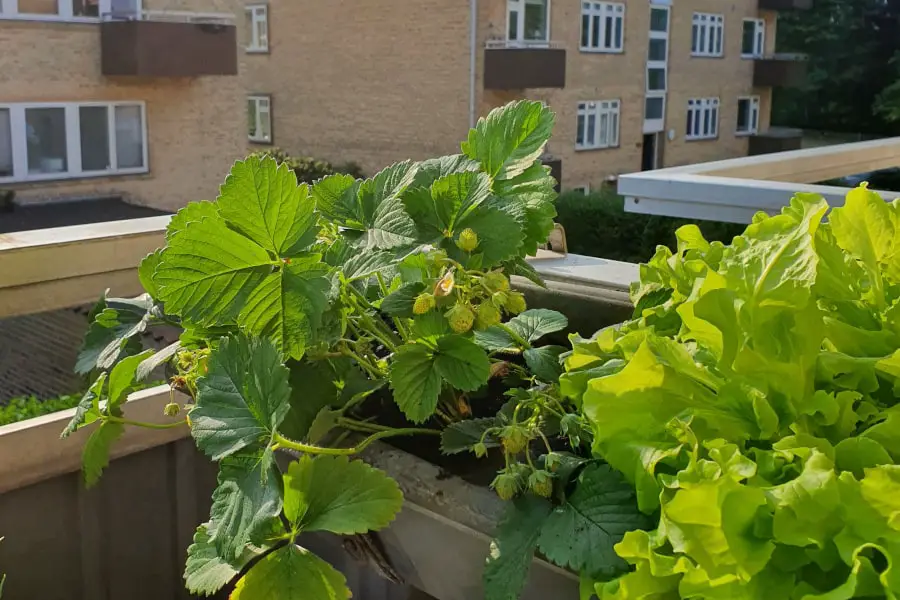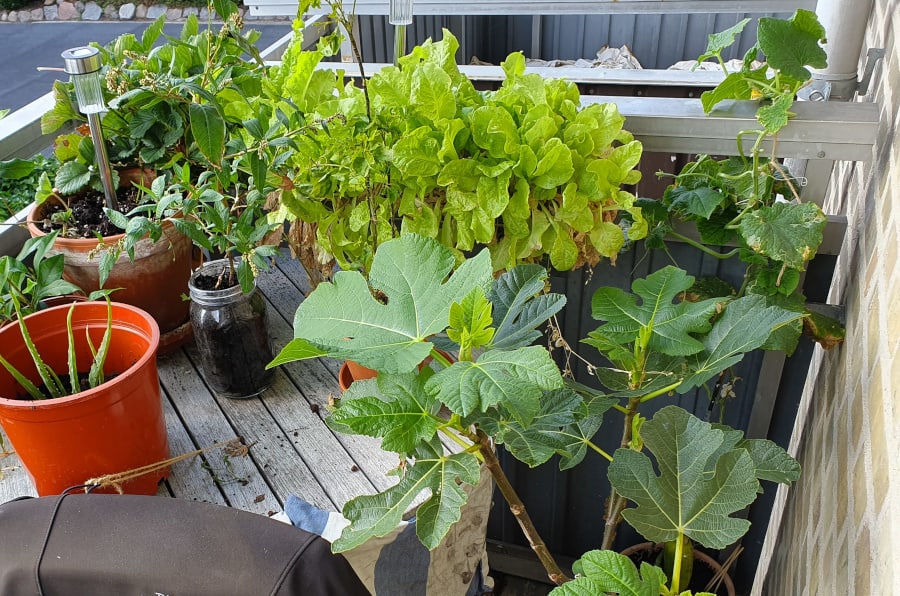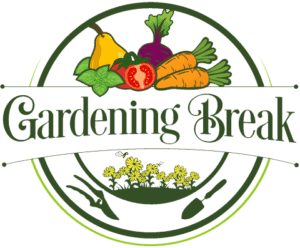A while ago, I lived in an apartment with a small balcony where I wanted to grow some plants. I did not think about what advantages and disadvantages gardening in such a small space came with before I started. I just went all in from the beginning.
While that might not have been the smartest way to do it, I learned that gardening in a small space comes with both a lot of advantages and disadvantages. I have written this article to share what I learned with you, so you know what to expect and what to be aware of if you decide to do gardening in a small space.

There are some relatively obvious advantages and disadvantages to gardening in a small space. I will also get into those, but after doing it for some time, I learned that there are also a bunch of advantages and disadvantages that you probably have not thought about, so I have tried to focus on those as well.
One thing that you have to keep in mind when you grow plants in small spaces is that choosing the right plants is crucial. That’s why I wrote this guide (link opens in a new tab) where I describe 43 garden plants you can grow in small spaces. It is both based on my own experience and ideas I got from talking to 6 gardening experts from different garden centers and plant nurseries. In addition to that, you can check out this article, where I explain 16 tricks I have used to grow a lot of food in a small space.
Advantages of gardening in a small space
I have come up with six excellent advantages of gardening in small spaces. I have arranged them in order of what I find most important.
1. Easy overview of your whole garden
A good overview of your garden makes it much easier to identify problems before they become too severe. One of the things I quickly learned when I started using the small balcony in the apartment I used to live in for gardening was that keeping all my plants in such a tiny space gave me a really good overview of everything.
2. Easy access to all plants for watering, fertilizing, and weeding
The second most important advantage of small-space gardening is that keeping your plants in a small space makes watering, fertilizing, weeding, and other maintenance much easier for you than if all the plants were spread over a larger area.
3. Higher pollination rates
The closer together plants are, the higher the chance of successful pollination becomes. This is because bees and other pollinators are much more likely to move between plants near each other than plants far away from each other. This higher pollination rate can potentially increase your overall harvest, so that is a huge advantage of growing your plants in a small space.
4. Efficient use of space
If you have a small space that you don’t use for anything, why not use it to grow some food instead of leaving it empty? There are lots of varieties that will fit in a small garden space, so making a small-space garden can be a very efficient use of space. If this sounds appealing to you, I highly recommend reading this article where I have made a list of 26 plants that fit very well in a small space.
5. A good way to make a small space visually appealing
Related to the point above, using a small space for gardening is not only a great way to use some space that wasn’t being used otherwise but also a great way to make a small space much more visually appealing than otherwise. Choose varieties you think look nice, consider adding some flowers, and make sure to remove dead growth over time. In my experience, a small garden can really liven up a small space.
6. A good way to save money
Like gardening in any type of space, a small space garden is an excellent way to save money. Of course, you will not be able to save as much money as if you had a large garden, but anything counts. If this is your goal, go for varieties that don’t take up a lot of space and cost a lot to purchase at the store. I recommend various herbs that you like since they usually don’t require much space but can be expensive to buy.
No matter what, growing plants in small spaces only work well if you do it right. That is why I have written this article where I explain five gardening methods that work well in small spaces. I have had varying success with the methods, but some of them have worked so well that I still use them every year.
Disadvantages of gardening in a small space
Unfortunately, there are also disadvantages associated with gardening in a small space. For example, it can quickly get messy as you can see in this photo of my old balcony, but that is not all. I have found five disadvantages of small-space gardening that I want to share with you. Like above, I have arranged them in order of what I find most important.

1. Pests and diseases can spread easily between plants
In my experience, the biggest disadvantage and risk of using a small space for gardening is that pests and diseases can spread between plants very easily and quickly. Of course, pests and diseases can attack plants no matter the size of the garden, but since plants in a small-space garden are typically pretty close to each other, the risk of pests and diseases spreading between plants is higher.
2. Plants can quickly become overcrowded in a small space
If you grow plants in a small space, you should be aware that they can quickly become overcrowded. It can be very tempting to squeeze in a few extra plants, but be careful since it can cause a lot of problems. I have written another article, which you can find here, about how to tell if your plants are overcrowded.
3. Plants can spread and take over other plants’ space
Some plants are known for spreading rapidly. Mint is a popular example of such a plant. If you grow a lot of plants near each other, you risk that some of the plants will spread and take over other plants’ growing space.
4. Plants become rootbound faster in small spaces
Your plants’ root systems will grow larger and larger over time. At least they are supposed to. If they grow in a large space, this will rarely become a problem, but if you grow your plants in a small space, the risk that their roots run out of space becomes much higher.
5. It is difficult to grow large quantities in small spaces
I saved this one for last because while it is definitely important to know, it is also very obvious that you won’t be able to grow as many plants in a small-space garden as in a larger space. This is, of course, a disadvantage, but one you probably knew from the beginning.
No matter what you decide to do, you should keep in mind that you have to be careful with gardening in a small space because plants need enough space and if they don’t get that, you will run into a bunch of problems. You can learn much more about that in this article, where I have written about 11 things that happen if plants don’t have enough space.
